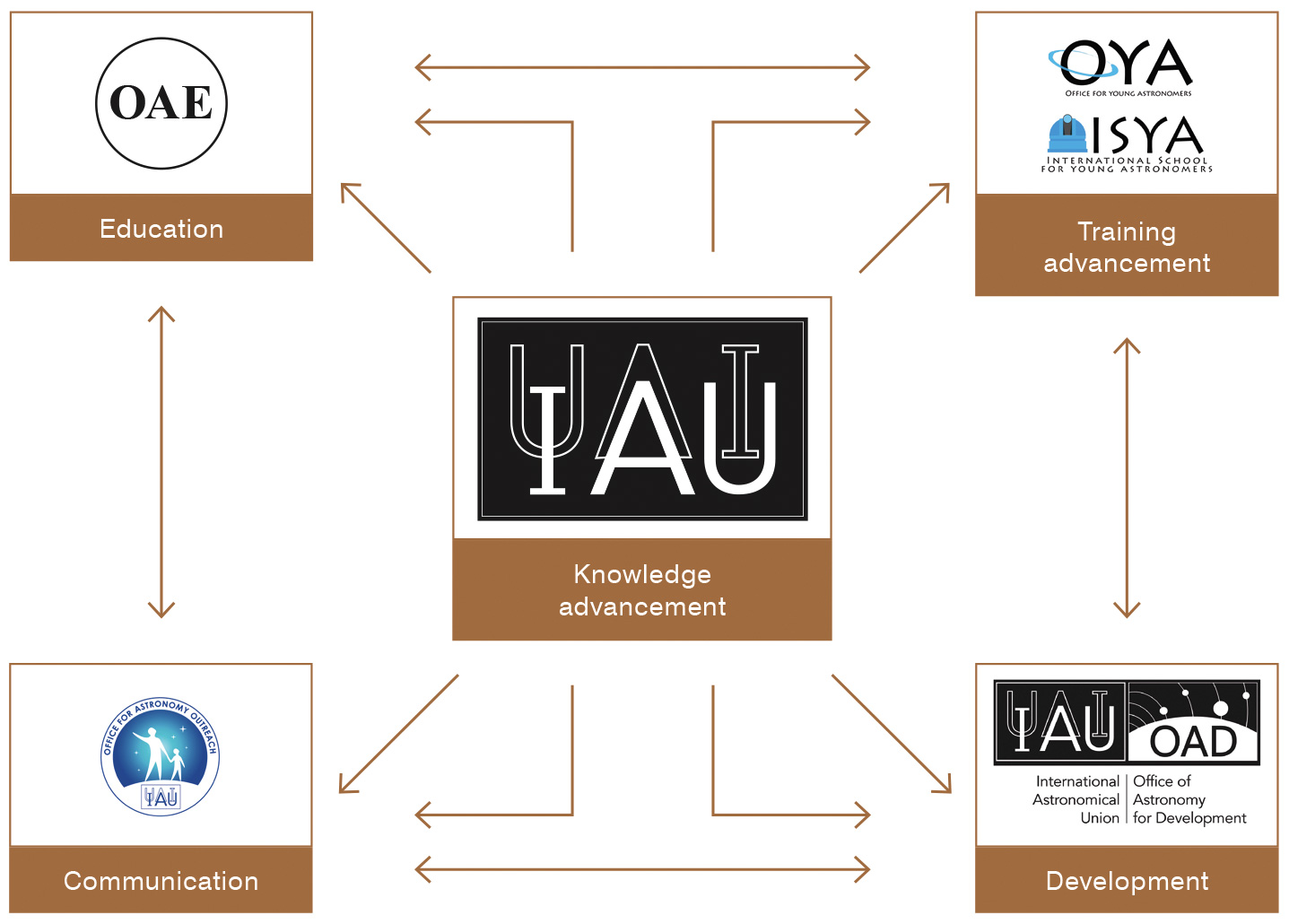IAU Seeks Proposals to Host Office of Astronomy for Education
Debra Elmegreen President, IAU
The International Astronomical Union (IAU) was founded in 1919. Its mission is to promote and safeguard astronomy in all its aspects — research, communication, education, and development — through international cooperation.
In furtherance of its mission the IAU has already created three offices:
- Office of Astronomy for Development (OAD), a joint venture with the South African National Research Foundation, established in 2011; through the OAD and its Regional Nodes across the world, astronomy is used to stimulate global development following the United Nations Sustainable Development Goals (SDGs);
- Office for Astronomy Outreach (OAO), a joint venture with the National Astronomical Observatory of Japan, established in 2012; through the OAO and its network of National Outreach Coordinators, the IAU promotes public awareness of astronomy, coordinates and manages international outreach campaigns, and maintains the relationship with amateur astronomers;
- Office for Young Astronomers (OYA), a joint venture with the Norwegian Academy of Sciences and Letters, was formally established in 2008; OYA focuses on the training of the future generation of astronomers through its International Schools for Young Astronomers (ISYA).
The IAU now intends to establish the Office of Astronomy for Education (OAE), focused on providing training and resources for using astronomy as a stimulus for science teaching and education, from the elementary to the high-school level.
The IAU Strategic Plan 2020-2030 (PDF), approved at the XXX General Assembly in Vienna in August 2018, provides a comprehensive overview of the IAU, describes how the different IAU activities fit together and how they complement each other, and presents the long-term goals of the organization.
OAE, the fourth office, would complete the set of targeted initiatives in response to the goals of the Strategic Plan.

Obviously, there are relations and crosscutting activities among the four IAU offices. The OAE will be established through an international Call for Proposals and will have the following main objectives:
- Identify the OAE host, which will work in partnership with the IAU.
- Establish a network of National Astronomy Education Coordinators (NAECs) that will represent the interface between the OAE and the community of teachers, in each coordinator’s country, who would be interested in astronomy and in using astronomy as a tool for teaching science in primary and secondary schools.
- Through the NAECs, liaise with curriculum experts and hopefully with education ministries to further the inclusion of astronomy in the national curricula, and perhaps to propose modifications of the national curricula and the schools’ syllabi, to develop educational material tailored to the needs of specific countries or groups and school level.
- Analyse, with the support of the NAECs, how astronomy is used in teaching in all IAU countries, identifying existing relevant actions and liaise with them; e.g., organizing professional development for teachers and high-quality teaching material that is readily accessible and that can be translated into the local language.
- Develop and encourage the use of standards to be followed in the organization of teacher training activities.
- Organize Regional or International Schools for Astronomy Education for teachers, adhering to these standards.
- Recruit and organize volunteer IAU members who are willing to contribute to the teacher training program.
Expected Timeline
- 31 December 2018: Letters of intent should be submitted to the IAU General Secretary
- 28 February 2019: Selection of a short list of prospective OAE hosts
- 30 June 2019: Proposals should be submitted to the IAU General Secretary
- 30 September 2019: Evaluation of proposals completed
- 31 December 2019: Agreement for the OAE signed by the selected host and the IAU

